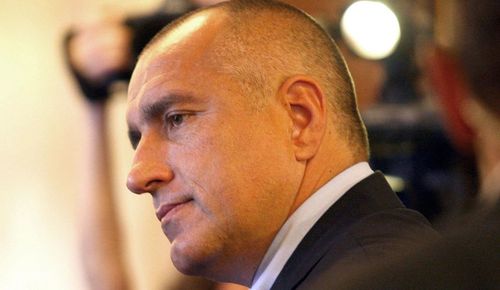 Boiko Borissov’s party will govern Bulgaria without bringing other parties into a ruling coalition, it emerged after the first round of talks between the country’s right-wing parties on July 15 2009.
Boiko Borissov’s party will govern Bulgaria without bringing other parties into a ruling coalition, it emerged after the first round of talks between the country’s right-wing parties on July 15 2009.
Borissov’s party, the Citizens for the European Development of Bulgaria (abbreviated as GERB in Bulgarian), which won the biggest share of votes at the elections, but not enough to have a majority in Parliament, invited for talks the leaders of The Blue Coalition, ultra-nationalist Ataka party and the Order, Law and Justice party to discuss the support Borissov’s future cabinet would have.
First to meet GERB were Blue Coalition co-leaders Martin Dimitrov and Ivan Kostov. Instead of a coalition agreement, it was proposed to them that they sign a memorandum stating their support for the future cabinet. The same memorandum was later approved by Ataka and OLJ.
However, Kostov and Dimitrov said after the meeting that the memorandum was not a binding agreement but rather a memo, and they expressed concern about how stable the new government would be at a time of economic crisis when the government will have to make tough decisions.
“Let’s call things by their real names. GERB will form its own government with the support of their 116 MPs, but will rely on the support of the other parties in Parliament,” Kostov was quoted as saying by Bulgarian-language Dnevnik daily. He said that the Borissov cabinet would get the support of the right-wing parties when approved by Parliament, even if there was no memorandum.
“This memorandum, however, cannot guarantee support for the government during its full four-year term of office,” Kostov said.
“The memorandum is a kind of memo not a binding agreement which forms trust among the relevant parties,” he said. The memorandum also featured certain policies and goals, but it did not say how they would be implemented, Kostov said.
The Blue Coalition will review the memorandum and send its remarks to GERB by July 17 2009.
GERB floor leader Tsvetan Tsvetanov made it clear that GERB was intending to form its own government.
“Our party won the votes of more than 1.6 million Bulgarians and we have to live up to their expectations and bear the full responsibility with which they have entrusted us,” Tsvetanov said. “The coalition formula is not received well by society” he said, a reference to the two most recent cabinets, both formed through coalition agreements.
According to Tsvetanov, by forming its own government, GERB would make Parliament’s control over the executive branch more effective.
As for the fact that GERB’s 116 MPs were not enough for a stable majority in Parliament, Tsvetanov said that if the government acted in a transparent way, there should be no problem getting the support of the rest of the right-wing parties and Ataka.
Tsvetanov said that GERB was open to experts from other parties taking part in the new government as cabinet ministers, deputy ministers or in other posts.
President Georgi Purvanov will designate Borissov to form a cabinet at 9.30am on July 16 2009 after which Borissov will have seven days to do so. The new cabinet is expected to be approved by Parliament on July 27 2009.
 Eurasia Press & News
Eurasia Press & News
